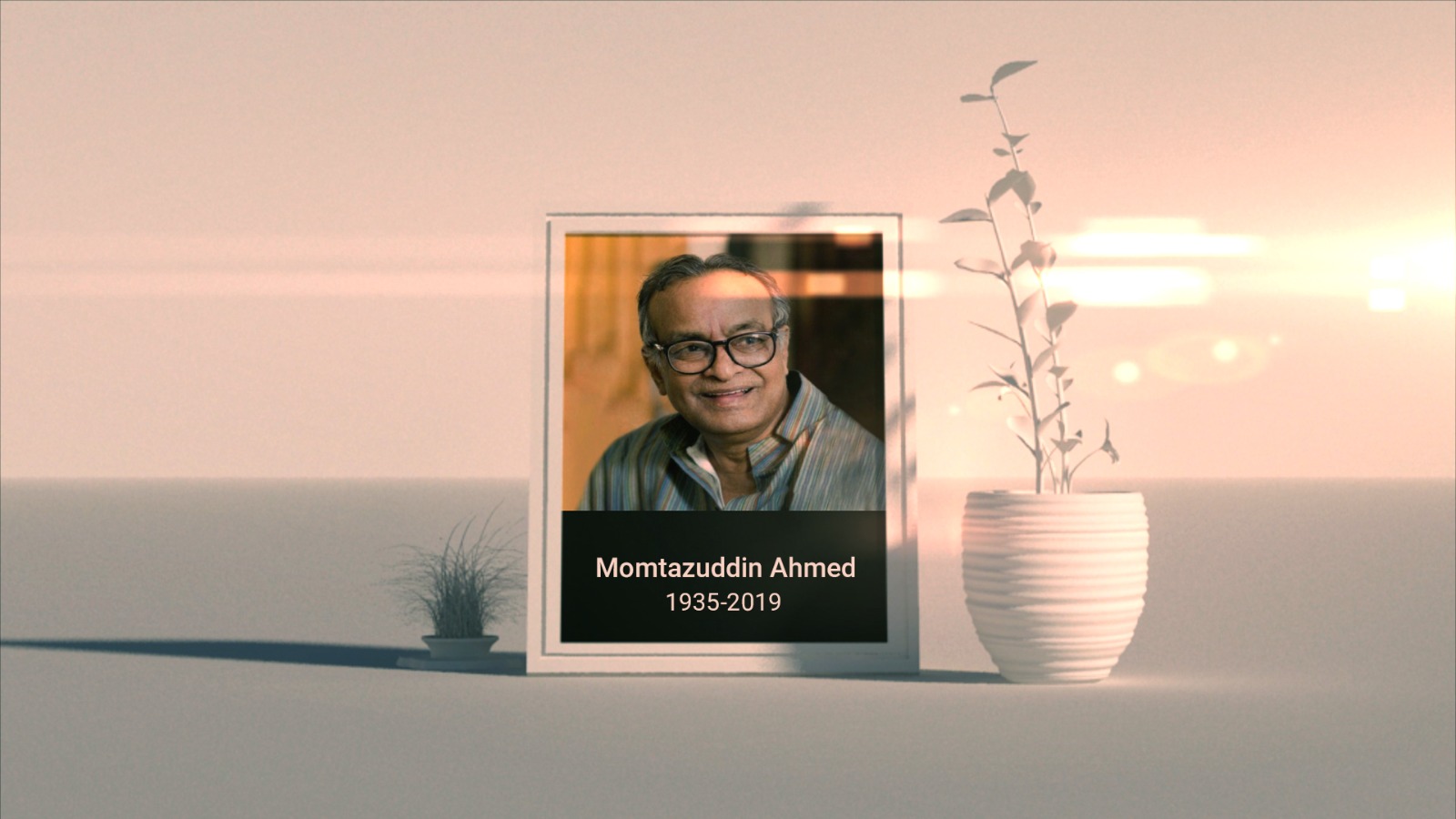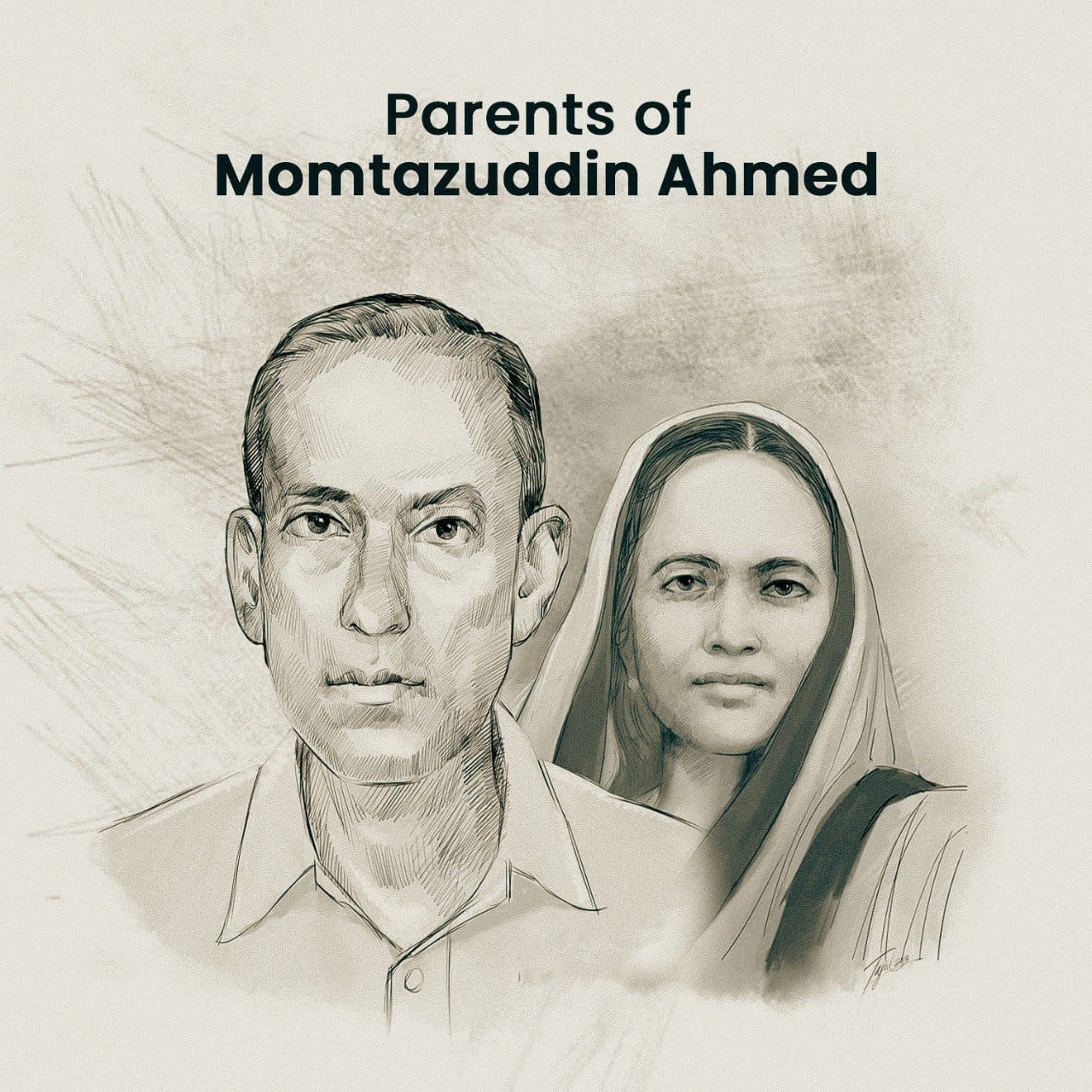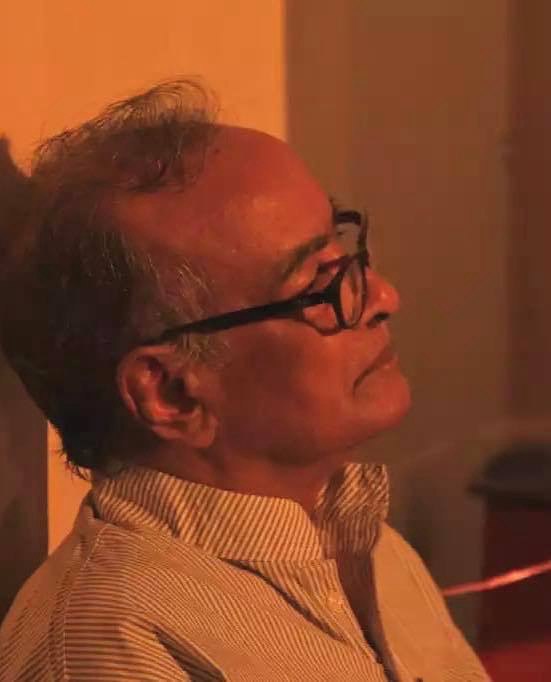


All official and unofficial documents related to Professor Momtazuddin Ahmed list his date of birth as January 18, 1935. However, according to his father's family records, his actual birth date was December 17, 1933. He was born on a winter Sunday afternoon around 3 PM, in the village of Aiho under Habibpur police station, in the Malda district of West Bengal. The discrepancy in the birth date arose because, at the time of his school admission, the headmaster calculated the date in a way that would make Momtazuddin Ahmed 22 years old upon completing his Master's degree. As a result, his birth date was adjusted forward by one year, one month, and one day at enrollment. Immediately after his birth, he was named Tamizuddin Miah. However, a respected village scholar, Yakub Ali, disapproved of the name and suggested Momtazuddin instead. Following his father's decision, the new name Momtazuddin Miah was officially given. His nickname, however, was Manjur. While his grandmother, maternal grandmother, aunts, and others called him Manjur, his father and uncles used the formal name Momtaz. Professor Momtazuddin Ahmed’s education began at the age of four, through his beloved elder sister Anju Bubu, who taught him rhymes and poems by heart. He started learning the alphabet from a primer bought at the village market on a market day. His father had strictly instructed the private tutor, Rais Sir, to be very disciplined with him. However, Rais Sir could never bring himself to enforce strict discipline due to the deep affection and indulgence shown by Momtazuddin’s grandmother.

Momtazuddin Ahmed studied up to the fourth grade at the secondary school in his village, Aiho. Later, he enrolled in the fifth grade at Malda District School, located in the main town of English Bazar, six miles from his village. He lived at the house of his uncle and aunt. His uncle, Ziauddin Ukil, took care of him while his father returned to their native village. This was the first time he was separated from his family and mother. However, when he left home this time, his grandmother didn’t express sorrow; rather, she encouraged him to study at a bigger school. He ranked first in the admission test and began a new chapter at Malda District School. His memories from that period were vivid. He lived under strict discipline at his uncle's house. He had to be at school by 9:30 AM. On the school veranda, the headmaster, Dr. Enamul Haque, would write daily news updates from home and abroad. Momtazuddin used to read them during tiffin time. His favorite teacher was the Bengali instructor, Charuchandra Chattopadhyay (C.C.C). English was taught by Prashanta Babu. Every Saturday, school was held for half a day, although students had to stay the full day. The annual function included singing and drawing competitions. Songs were written and composed by Charu Babu, while drawing was taught by Biren Babu. Through various cultural activities, he developed close childhood friendships. After securing first place in both the fifth and sixth grades, he moved to live with his maternal aunt when he entered the seventh grade. But his aunt’s house lacked the strict discipline he was used to. Some irregularities were tolerated, and he became an avid movie lover. Later, he moved into the Muslim student dormitory, located next to the Hindu dormitory. Students from both dorms lived together in harmony. Occasionally, he would sneak out of the dormitory at night to watch movies. Once, he was fined four rupees for this. During this time, his beloved grandmother passed away, though he learned of it much later. During the partition of India and Pakistan, Muslim students were unjustly expelled from the hostel and school due to false accusations. At that point, only a few months remained before his matriculation exam. Momtazuddin then moved to his maternal grandfather’s house in Bholahat, Pakistan (now Bangladesh), and got admitted to Rameshwar Secondary School, where he completed his matriculation. Although he had always been a top student, his results weren’t as expected. Nevertheless, passing matriculation was a significant achievement at the time, so he didn’t challenge his marks. That year, only about seven or eight students from Rameshwar Secondary School passed the matric exam. While he wasn’t personally satisfied with the result, his family was happy with this level of success.

When the son rushed into the ICU, fresh off the flight, his eyes searched for the familiar sight—Momtazuddin Ahmed, the legendary dramatist, who would always greet him with a radiant spark in his gaze, a smile like a child’s secret, and a flurry of kisses pressed to his palm. "Abba, I’m here," the son would whisper, and his father’s face would crinkle with triumph, as if his son’s arrival alone could defy mortality.
But not this time.
Momtazuddin lay motionless, a muted echo of his vibrant self. His eyes, though open, held no light; his voice, a dry rustle. "Ba… ba… you came," he managed, and the son’s heart fractured. He clasped his father’s hand—those slender, ink-stained fingers that had scripted a thousand stories—now limp and cool. Around them, the ICU buzzed with hushed urgency: a cousin reciting Surah Yasin, another trickling Zamzam water onto cracked lips, the rhythmic beep of the monitor counting down.
The son, a doctor himself, watched the numbers plummet. MAP: 47. Pulse: 42. A statistician of grief. He pressed his forehead to his father’s feet, staining the sheets with tears. "Forgive me, Abba." No answer. Only the shudder of a final breath at 3:48 PM, and the cruel green line that followed.
In the silence, he kissed Momtazuddin’s palm one last time—the hand that had penned revolutions, now stilled. A sob caught in his throat, but then, a thought: somewhere beyond the sterile white, his father was already composing a new drama, his words unfurling like dawn over an unseen stage.
"Bon voyage, Abba," he murmured. "Your next act begins."